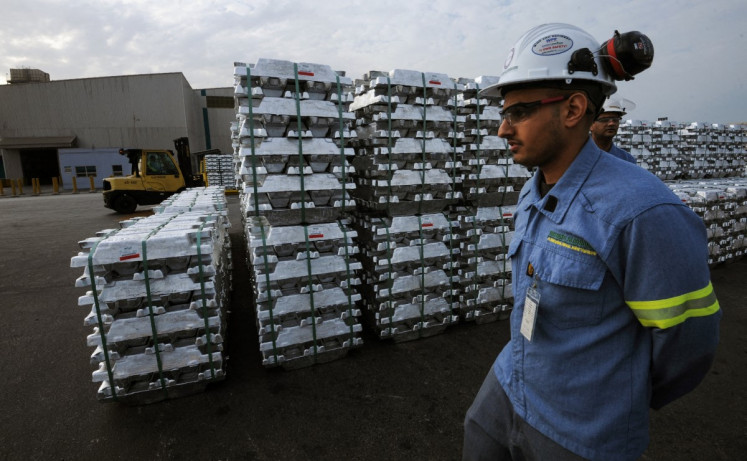Popular Reads
Top Results
Can't find what you're looking for?
View all search resultsPopular Reads
Top Results
Can't find what you're looking for?
View all search resultsNot out of the woods yet
Almost all sectors, excluding transport, hospitality and warehousing, posted healthy growth, along with private consumption, investment and government spending.
Change text size
Gift Premium Articles
to Anyone
I
ndonesia's economic expansion slowed sharply to 3.51 percent in the third quarter from 7.07 percent year-on-year (yoy), and to 1.55 percent from 3.31 percent on a quarter-to-quarter basis, weighed down by severe mobility restrictions implemented to ease the country's highest COVID-19 infection rate from July to mid-August.
The economy would have performed much worse had it not been supported by a big rise in government spending on social assistance and health services, notably for a massive vaccination rollout, and a 30 percent growth in exports propelled by the boom of primary commodities, such as palm oil, coal and other minerals.
But as the infection rate began to fall significantly in late August as the result of a vigorous vaccination campaign and the strong enforcement of health protocols, mobility restrictions were eased in early September, jump-starting economic activities. This development reiterates that coping with the pandemic is the key to a strong economic recovery.
Almost all sectors, excluding transport, hospitality and warehousing, posted healthy growth, along with private consumption, investment and government spending. Government revenues booked an almost 17 percent growth, supported mainly by a commodity boom; the budget deficit stands at 2.74 percent as of September; credit expanded by 2.20 percent and foreign trade balance has seen a cumulative surplus of US$25.07 billion, also as of September.
Even though the July-September growth figure was smaller than the government's expectation of 4.5 percent, the indicators point to a higher pace of recovery in the fourth quarter.
The government expects a 5.4 percent growth in the fourth quarter and a 4 percent expansion for the whole year, against private analysts’ estimate of 3.2-3.6 percent. We share the government's estimate, provided that the COVID-19 infection rate continues to fall and the vaccination rollout remains aggressive so that both consumer and business confidence will get stronger.
The eased mobility restrictions will further encourage private consumption, thereby unleashing the pent-up demand during the third quarter. Government spending, which usually peaks in the last quarter, will further be bolstered by the lower-than-expected fiscal deficit (as of September) and by the low inflation, which was checked at 1.57 percent.
However, the government should remain alert to the likely headwinds ahead as China’s economy — Indonesia’s biggest trading partner and foreign investor — seems to be weakened and international oil prices have remained over $75 per barrel since September, compared to the $45 average assumed for the state budget. The prospect of monetary tightening in the United States and the European Union may also dampen the interests of portfolio investors in Indonesia.
The more ambitious targets of reducing carbon emissions, which the government pledged at the last climate summit in Glasgow, Scotland, notably those for a tighter check on deforestation, would put the country under strong environmental, social and governance (ESG) pressures by the international community.
This may need to slow down the growth of agribusiness, a component of agriculture that contributes 14 percent of gross domestic product (GDP) and employs 30 percent of the workforce because this sector is responsible for more than 90 percent of deforestation.










